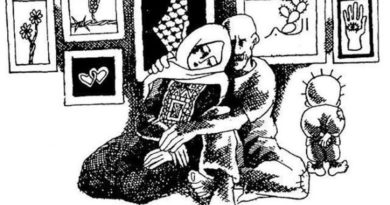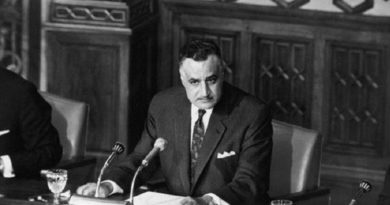Al-Awda: the Theme of Return in Contemporary Arabic Literature: a Case-Study of Samira ‘Azam. By Nejmeh Khalil-Habib
Al-Awda: the Theme of Return in Contemporary Arabic Literature: a Case-Study of Samira ‘Azam. By Nejmeh Khalil-Habib
The Palestinian Question and its political and cultural consequences concern intellectuals, politicians and creative writers all over the Arab world, both in surrounding and faraway countries. This makes the Palestinian cause a prominent theme in contemporary Arabic literature. Although many previous studies have focused on issues related to the Palestinian experience, discussing such themes as heroism, humanism, woman’s role in the conflict, the uprising (“Al-Intifada”) or the peace process, no previous study has dealt with the important and recurring theme of the “Return” (Al-Awada).
My aim in this paper is to show how Arabic fiction has dealt with this national experience, how it depicted those who live the dream of “Return” and those who physically returned to Palestine either after the 1967 war or after the Oslo Accords. The concept of “Return” throughout this literature manifests itself in various ways including the spiritual return (as manifested in dreams and aspirations); the literal, physical return; an individual’s return (a “Return” on the basis of family reunions); the “Return” as a result of the occupation of Gaza and the West Bank after the war of 1967; and the “Return” as a result of the peace process after the “Oslo Accords.” I have limited myself in this paper to the study of the pattern of return in Samira Azzams short stories, hoping to shed some light on this neglected motif in Arab literature. Whether exile happens voluntarily or under oppressive circumstances, the dream o
To first and second generation diaspora Palestinians the dream of “Return” (Al-Awda) is deeply implanted in their collective memory. It is rooted in the Palestinian conscience like a faith that could not be denied, because denying it would mean uprooting the lynchpin upon which modern Palestinian history and identity depends. As Fawaz Turky asserts, the right and dream of Return is the rock upon which our nation was established and the social balance that unites the nation in this wretched world.
1 With this dream in mind refugees in camps were capable of resisting all the allure of merging and domestication and keep seeing their situation as temporary. In the West where most of Palestinians are naturalized, they are still in connection with their people in other exiles, and they still celebrate their national holidays. For many of those who did not emigrate and became Israeli citizens many continue to refer to the counties and places by the names they had prior to Israeli colonisation.. Even after the Oslo Accords, where Palestinians agreed to recognize Israel, many continued to feel that the whole country was theirs and that their agreement came from a perception that Palestine is the mother of the child (Israel).
Danny Rubenstein, an Israeli writer, expressed his amazement towards the insistence of the Palestinians to stay attached to their long erased homes, and how that the country to them is not just Palestine but the exact village from whence each came (not any other village, even if it were to be only two kilometres away). In relation to this strong attachment he observed that “Every people in the world live in a place, except Palestinians, the place lives in them.”2 1 Turki, Fawaz. Exile’s Return: The Making of the Palestinian American, New York: Free Press, Toronto: Maxwell Macmillan, Canada, New York: Maxwell Macmillan International, 1994, p: 33) 2 Danny Rubenstein. The People of Nowhere: The Palestinian Vision of Home, translated by Ina Friedman, New York ,Times Books, 1991, p: 7, 90 and 12
This is a part of an essay written to Nabula Magazine, to know more, see the attached file




